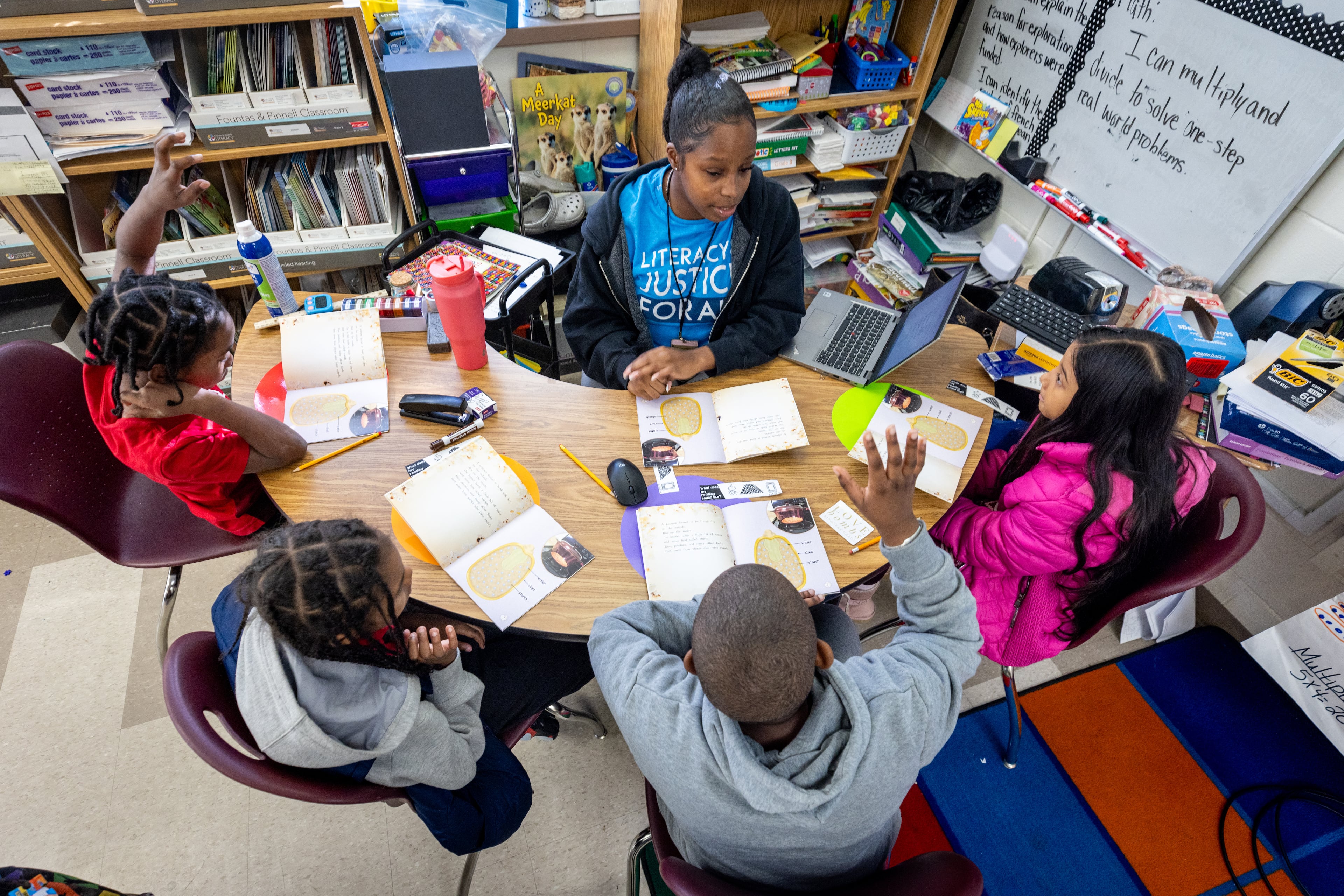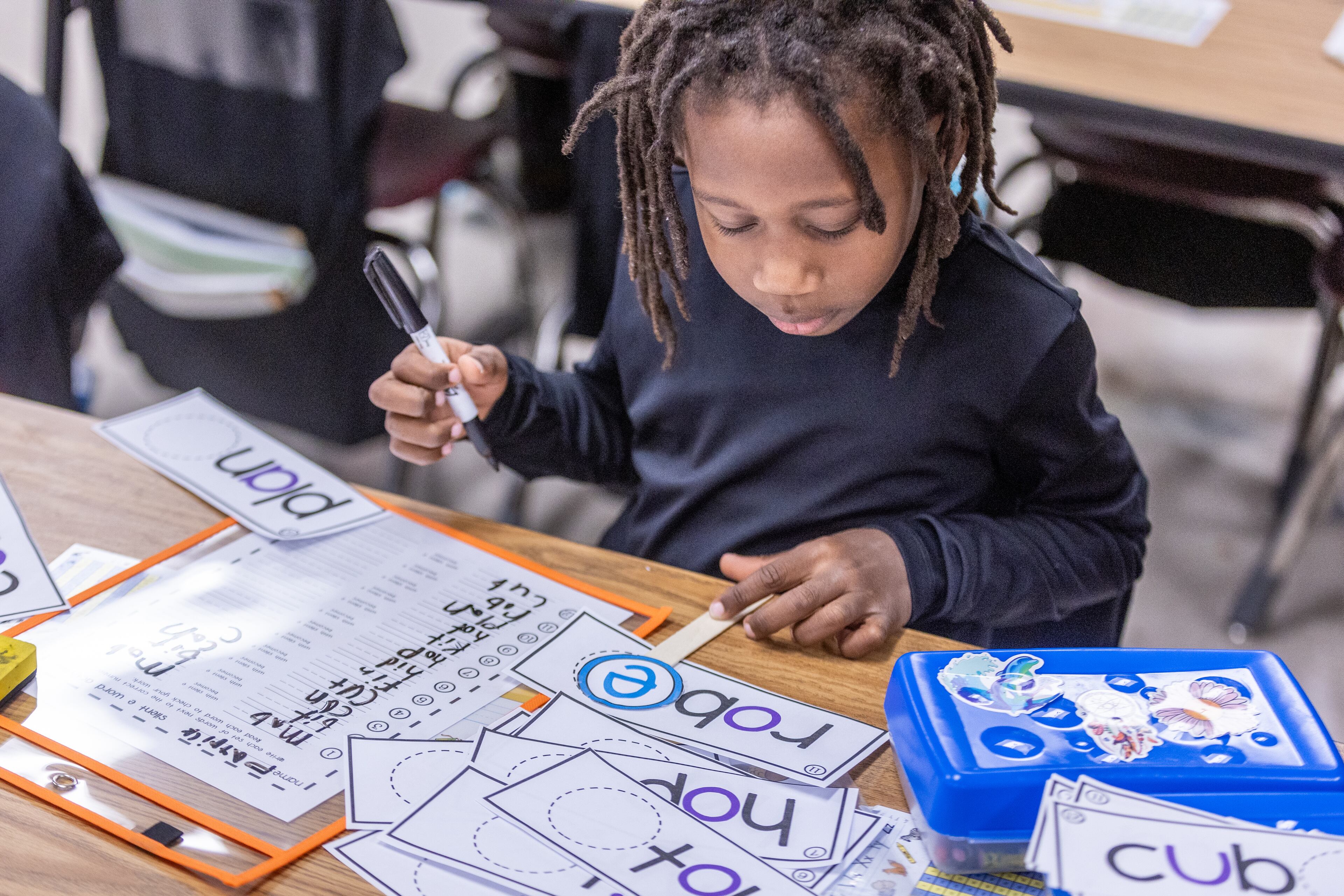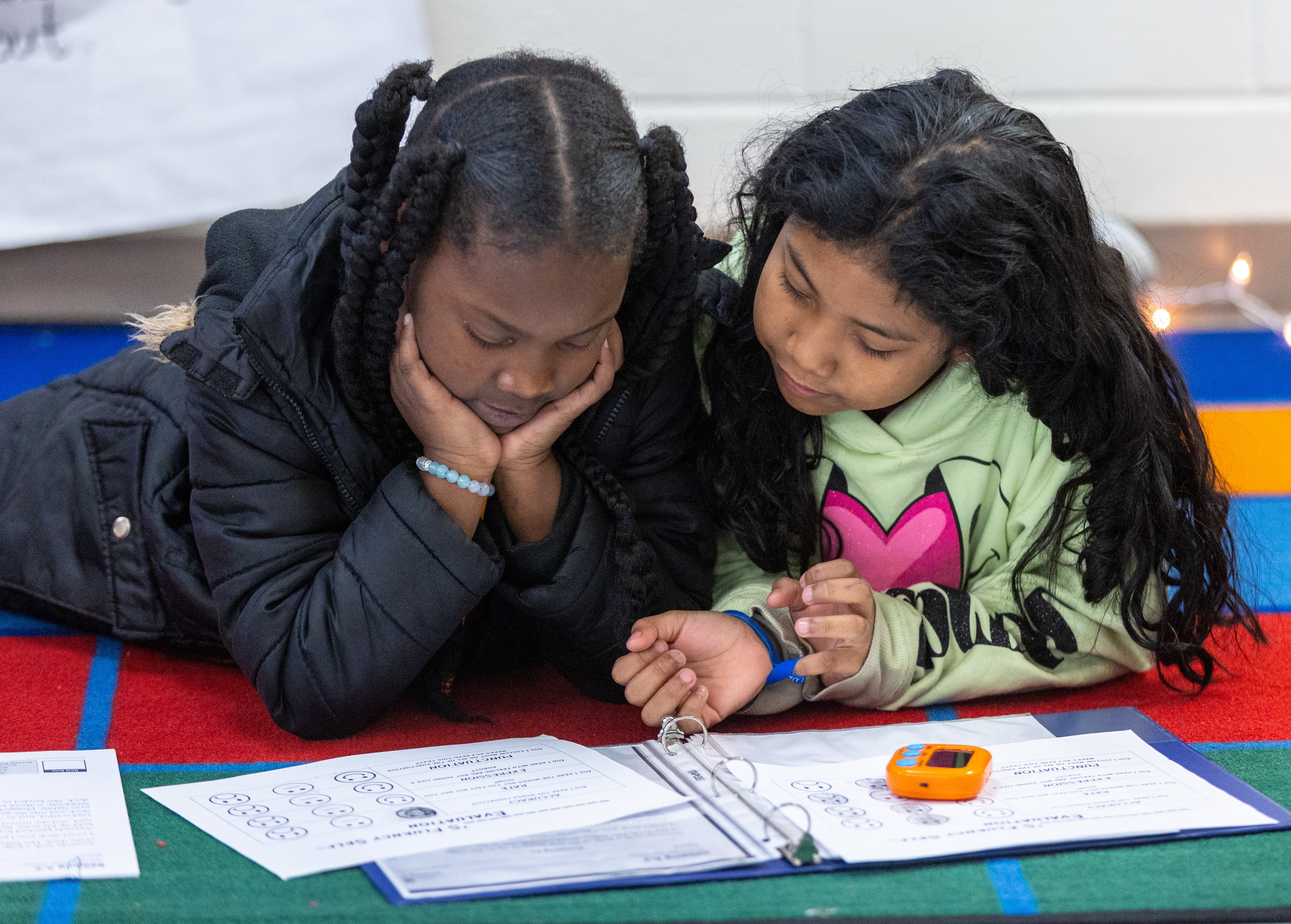Atlanta Public Schools seeks to achieve equity through new literacy plan

On a recent Tuesday morning, third graders at Atlanta’s Kimberly Elementary School excitedly move to different reading stations.
Their teacher, Shamaudie McClendon, has given them all assignments. Some children are working with teachers; others are reading in pairs and timing themselves.
McClendon sits at a small table with a group of four students. They’re about to read a book about popping popcorn, but she gives them some reminders first.
“What do I NOT want you to sound like?” she asks the group.
“A robot,” one child responds.
Kimberly is one of eight schools participating in Atlanta Public Schools’ literacy-based pilot program. The initiative, called Literacy and Justice for All, is a partnership between the United Way of Greater Atlanta, the Joseph B. Whitehead Foundation and the Atlanta Speech School. The Atlanta school board recently approved its first-ever literacy policy, which requires the superintendent to pick “evidence-based literacy curricula” to improve student performance. More than 40% of APS third graders were below grade level in reading last year, according to state data.
The program began in Marietta’s school district and focuses on phonics, fluency, vocabulary and comprehension. (The program’s online component, called Cox Campus, is funded in part by the James M. Cox Foundation, which is affiliated with the owners of The Atlanta Journal-Constitution.)

“(The program) is a mindset that, ‘We’re going to do whatever it takes (to improve literacy),’” said Ryan Lee-James, a speech-language pathologist and chief academic officer at the Atlanta Speech School.
Lee-James pointed out that Marietta has seen improved English and reading scores on the Georgia Milestones yearly assessment. District officials have attributed the gains to the system’s revamped approach to reading. The school system is now in its third year of the initiative.
Kimberly is in the second year of its pilot program. It’s early, but the school did see an increase in the percentage of students reading on grade level after the program’s first year. Georgia Milestones data shows 41.3% of the school’s third graders were reading on grade level last year, compared to 25.9% the year before. English scores also improved with 15.2% of third graders scoring proficient or above, compared to 7.4% the previous year.

The majority of students in Atlanta’s pilot schools are Black and economically disadvantaged. Most of their third graders scored below grade level in reading and English language arts on state tests last year. In APS as a whole, state data shows about 44% of third graders were below grade level in reading on last year’s Milestones. The news was worse for Black students, with 55% of Black third graders reading below their grade level.
At Kimberly, 93.4% of students are Black and 65.5% are economically disadvantaged, according to state data.
“Many of the students that we serve have a long history of poverty, what we call ‘generational poverty,’” said Kimberly Principal Joseph Salley. “With that comes some ... disrupted instruction because of moving that happens on a consistent basis.”
Kimberly has a 47.3% mobility rate, meaning almost half of the students change schools during the year. Salley said providing consistency — like having similar, quality reading instruction across schools — could help narrow gaps in equity.
“(Our students) have to be reading on grade level when they leave us,” Salley said. “Otherwise, everything else is blocked off to them. They can’t read the contract. They can’t read the lease. They can’t apply for the job.”

In classrooms throughout Kimberly, students are working in groups on different reading skills. Some are sounding out letters and words through fun games with colorful pieces. They’re touching letters as they spell words out loud. They’re counting sounds and syllables.
McClendon said she hopes APS keeps the program because her students this year were better prepared after going through the program in second grade.
“It’s a total (and) complete difference,” she said. “These students ... have a little bit more background knowledge on certain things than (previous classes) ... because we didn’t have this program in place.”
It’s unclear whether the district will grant McClendon’s wish to keep Literacy and Justice for All and expand it to the rest of the district, but the school board’s policy committee chair, Cynthia Briscoe Brown, agrees that providing evidence-based reading instruction is an equity issue.
“We certainly want to get all our lessons learned from (the program), look at the results, look at what worked and what didn’t,” Brown said in a phone interview. “Certainly I’d hope something like ... the current program could be scaled to work across the district everywhere that it’s needed.”
APS schools participating in the Literacy and Justice for All pilot program:
Heritage Elementary School
Kimberly Elementary School
Dobbs Elementary School
Dunbar Elementary School
Tuskegee Airmen Global Academy
Peyton Forest Elementary School
Barack and Michelle Obama Academy
Miles Elementary School



